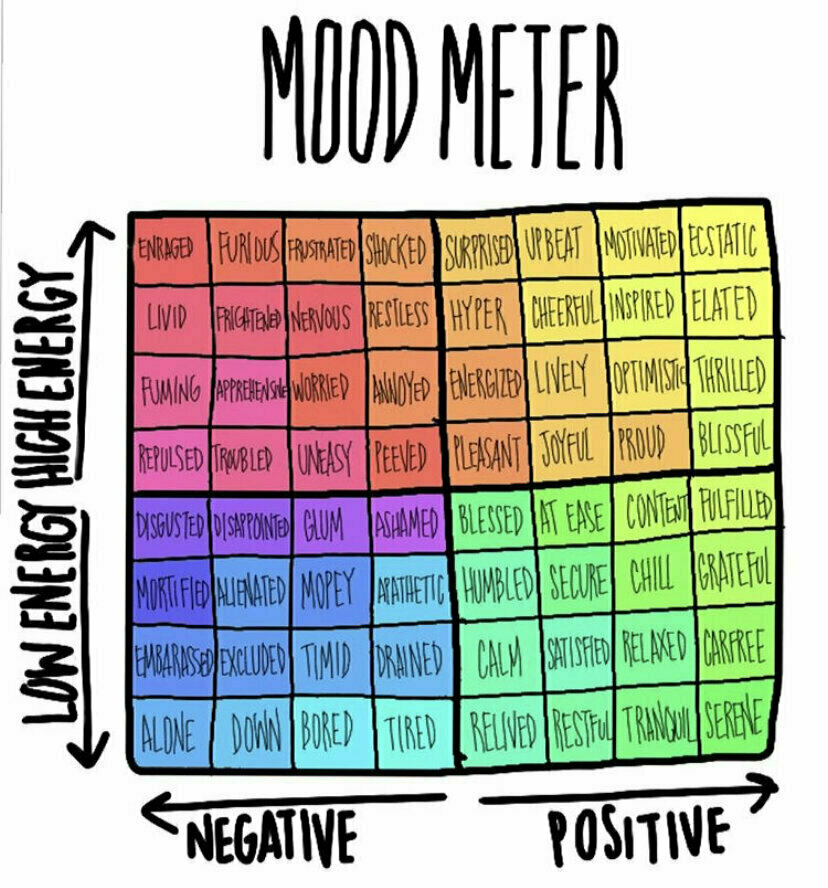Imitating the Trinity as Trinity is not a biblical way of talking. We are told to imitate God the Father in his relationship to humanity; to be imitators of God as beloved children; to be perfect as our Father in heaven is perfect (sending his rain on the just and the unjust). But most of the equipment of trinitarian theology points to ways in which God differs from us, not ways in which God is like us.
Following up on my sermon today from 1 Corinthians 5, here’s a good article by Carl Trueman that’s worth your time: Discipline, Dirty Hands, and the Silent Abolition of Christianity.
If you need a study Bible for older kids, mine like using the ESV Student Study Bible. It’s a good all-around study Bible, especially for jr high and high schoolers.
Being especially charming isn’t necessarily terrible for pastoral ministry, but it isn’t necessary either. Read more at 9marks.org.
Connection is an essential element of healthy relationships. And connections start with bids. Dr. John Gottman calls a bid “the fundamental unit of emotional communication”. Bids “can be a question, a gesture, a look, a touch.” Here are few things to know about bidding, according to Dr. Gottman, as found in The Relationship Cure and other writings.
Clear Bidding vs Fuzzy Bidding
Clear bidding strengthens relationships. Fuzzy bidding downgrades the possibility for connection, and usually occurs in order to avoid emotional risk. Gottman gives an example of a woman asking: “Would you hold me for a while?” This is a clear bid. But “It feels kind of cold in here don’t you think?“ is a fuzzy bid. It might result in him getting her a blanket. She avoids being hurt by a “no”, but doesn’t get what she really wants and can feel hurt about that.
3 ways to respond to a bid
There are three possible responses to a bid. You can turn toward, turning against, turn away.
- Turning toward: a positive emotional response
- Turning against: a negative emotional response
- Turning away: a non-response
Good relationships involve lots of emotional connection, which is made by turning toward bids as much as possible, with good dollops of playfulness and enthusiasm. Playfulness and enthusiasm are important because these are “how we express delight in the other person.”
“Bid Busters”, as Gottman calls them, include:
- Being mindless instead of mindful
- Starting on a sour note
- Harsh criticism instead of constructive criticism
- Flooding
- Having a crabby mind instead of a thankful mind
- Avoiding conversations you need to have
Bust the bid-busters by learning to ATTUNE
“I’ve come to see this connection with the other person as the bedrock of communicating.” — Alan Alda
To avoid and overcome bid-busters, Gottman says you must attune to the other person.
A-attend (undivided attention)
TT-turn toward (physically)
U-understand (attempt to understand what they are saying and why it’s important to them)
N-nondefensively listen (two ears, one mouth; listen twice as much; don’t interrupt)
E-empathize (U-“understand” is the intellectual part, this is the emotional part; discern what the other person feels and why; emotions, even painful ones, are opportunities for intimacy and connection)
If you want to know more about why this works and build your skills of attunement. I’d suggest you do the following.
Attune to God. “…behold, a bright cloud overshadowed them, and a voice from the cloud said, “This is my beloved Son, with whom I am well pleased; listen to him” (Matt 17:5). Start by learning to attune to God through his word and works. Nothing is more important than “hearing with faith” (Galatians 3v2, 5). “…behold, a bright cloud overshadowed them, and a voice from the cloud said, “This is my beloved Son, with whom I am well pleased; listen to him.”
Read Alan Alda’s book, If I Understood You, Would I Have This Look on My Face?” and play the improv games he suggests. He shows how to listen with your eyes as well as our ears. Alda introduces his ideas in his 2015 interview with Diane Rehm.
Work through the chapters of Gottman’s book, The Relationship Cure that cover bidding. Much of the content from Gottman in this post comes from this book.
Learn about emotions from a Christian perspective.
Get attuned to your own emotions. One way to do this is to strengthen your ability to identify and name your emotions. One of the best ways to do this by using the Yale Mood Meter. Take Yale’s free online 10 hour emotions class to dig deeper.
 Image Source: @the_kid_factory on Instagram
Image Source: @the_kid_factory on Instagram
we all got conflict. here are some things you should know and tips for what to do about it.

Whatever kind of relationship you have, invest in it when there isn’t conflict. For married life, see these examples.
Conflict is part of life under the sun. Since you will have to face it, instead of fearing it, learn how to work through it in a way that honors God.
According to John Gottman, what most often destroys are defensiveness, contempt, stonewalling, criticism. He calls these the Four Horsemen of the Apocalypse because they are harbingers of the end of a relationship. Using these, even when used against you, will increase conflict not lessen it. This is true for other types of relationships too.
Know that not all problems/conflicts are the same. Perpetual problems are problems that are difficult to solve, but you can live with them. According to Gottman, in stable marriages, spouses decide to just live with them, mitigate their impact, and approach them with good humor. In unstable marriages, spouses get grid locked and feel increasingly hurt, rejected, and lonely. When you find yourselves grid locked, it is usually “a sign that you have dreams for your life that aren’t being addressed or respected by each other”. Determine what those dreams are, taking breaks as necessary and perhaps with help. As you do, work toward finding ways to support and honor each other’s dreams. Solvable problems should be tackled right away. What applies to marriages above, also applies to other kinds of relationships.
Resource: The Gottman 19 Areas Checklist for Solvable and Perpetual Problems
When there is a conflict, we get anxious. Learn to notice anxiety in yourself by noticing “a spinning mind, a racing heart, or a tightening gut” (Steve Cuss). This is important because when you’re flooded with anxiety, you make poor decisions that make things worse. So, if you’re feeling anxious, deal with it—often before you deal with the conflict itself. This is part of getting the log out of your own eye. You might do it in the moment or you may need more time. Deep breathing, prayer, walking, and easy reading unrelated to the problem can help you calm down. If you need a break during a hard conversation, Gottman suggests saying something like this: “You know what, I’m having a hard time listening to you right now, and I will come back in 30 minutes so we can continue to talk.” These words are effective because they take responsibility for your own emotions while staying connected to the other person.
Don’t deal with anxiety by over-functioning or under-functioning. Over-functioning is when you take over something that someone else should do for themselves, this includes feeling and thinking. Coercion, abuse, and manipulation are extreme examples of over-functioning. Milder forms look like giving unwanted advice or doing someone else’s work for them. Under-fucntioning is letting someone take over something you should do for yourself—including your thinking and feeling. Connecting your happiness with someone else’s happiness is one example. Refusing to point out or admit problems because it might create conflict is another. Instead of dealing with conflict in these ways, we ought to do what we should, leave to God and the other person what they are responsible for, and remain lovingly connected throughout the whole process. A psychological term for this is self-differentiation, read this summary to learn more. I learned this framework from Murray Bowen’s ideas, which Brené Brown explains well.
So what does peacemaking look like? Ken Sande has distilled the Bible’s teaching on conflict resolution into a memorable “4 Gs.” These steps will help you be a peacemaker instead of a peacebreaker or a peacefaker, as Sande puts it.
- Glorify God. How can I honor God in this situation?
- Get the log our of your eye. How can I own my part of this conflict?
- Gently restore. How can I help others own their contributions to this clash?
- Go and be reconciled. How can I pass along God’s forgiveness and help reach a reasonable solution?
Learn more about these biblical steps in Sande’s book, The Peacemaker: Student Edition, Handling Conflict Without Fighting Back or Running Away. There is a larger version of this book as well, but this edition will suffice for most people.
No matter what type of relationship you’re concerned about, you can follow this basic process alongside of Gottman’s great tips for dealing with the “Four Horseman” I mentioned above.
Learn to apply the advice above in church, friendships, work, your neighborhood, and family life. It may save your relationships from failure and create some of the most fulfilling relationships of your life. But remember, it’s not your job to solve every problem. Your job is to approach conflict in obedience to God, trusting that he will use even the most challenging trials for good.

Currently reading: If I Understood You, Would I Have This Look on My Face?: My Adventures in the Art and Science of Relating and Communicating by Alan Alda 📚
Putting public hand washing stations outside of the restrooms is a great idea. This one is at @TheTapAndBottle (North). I think the downtown #tucson @cartelcoffeelab has one too.


Finished reading: From Embers to a Flame: How God Can Revitalize Your Church by Harry L. Reeder, III 📚Not just for those feeling down about their church. Reeder gives a biblical model for church life with practical applications that can help many. Good for elder training.

Finished re-reading: The Pastor Theologian: Resurrecting an Ancient Vision by Gerald Hiestand and Todd Wilson 📚 Two ideas I want to try: have project focus and put together a writing/reading group for support; schedule study leave for focused work.

Finished reading: A Practical Guide to Culture: Helping the Next Generation Navigate Today’s World by John Stonestreet 📚 A good starting point for overwhlemed caregivers.
The Onym Guide is a really fun and helpful resource for people who like words, with some sweet web design to boot. Officially it is: “an on-going open source attempt to organize the best tools and resources for naming things.”
Went on a beautiful, rainy hike in the Santa Catalina Mountains today with some folks from Covenant. So refreshing. We even saw a deer.

It’s one thing to interconnect your and your spouse’s lives , it’s another to cultivate a life together. Both are important, this post is about the latter: how to cultivate a life together.
1. Have shared values and goals
It’s hard to cultivate a life together if you are heading in different directions and in different ways. Why are you married? What do you want your future to like? What values and principles guide you on your way? These things should be known, agreed upon, celebrated, and protected. Re: core values, Donald Miller via Ken Blanchard says you should have three.
2. Create rituals
Another way to cultivate a life together is through rituals. By ritual, I mean a kind of repeatable, predictable series of actions that strengthen the relationship. You may connect these to time, as with birthday parties or watering the plants together on Wednesdays. Or you may connect them to events, as with celebration dinners after work promotions or the sharing of presents after coming home from trips. Some rituals will be common within your culture and others will be particular to your marriage.
Dr. John Gottman suggests some key rituals that can make a big difference in a marriage: partings, reunions, goodnight kiss, weekly date, state of the union. Click the clink and learn about these with your spouse. Decide which of them, or others, you’d like to incorporate into your married life.
3. Nurture romance
Romance is also important for cultivating a life together. By this I mean you should cultivate feelings of love, desire, joy, hope and longing for each other. Of course, some of the chemistry that happens between two people is automatic and mysterious, but it can also be learned, fostered, matured.
Leaning into romance and learning how to romance is an important for building connection. It demonstrates love and blesses our partner. If you struggle with this, it may help to learn what attracts and what inhibits attraction. Learn also to respect and enjoy masculinity and femininity. The Man’s Guide to Women by husband and wife teams, Gottman and Abrams, can help. You can be sure that it starts with admiration and affection. There are lots of good ways to do this, an admiration journal is one good idea.
4. Have sex
Sex is both ritual and romance. It’s not the only tool in the toolbox for building connection with each other, but it’s an important one. Married people should have sex and should make it about more than private parts: the best sex is an intercourse (communion, exchange) of the mind and body and heart.
Couples should have sex frequently, neither demanding nor withholding from one another. See 1 Corinthians 7v1-5. Research suggests 1-2x per week might be a healthy, average baseline for most people.
Learn how to talk about sex with each other. Find out what preferences or concerns each has regarding initiating sex, frequency, satisfaction, etc. Gaining knowledge of each other’s bodies and souls, working through problems together, and finding solutions to those problems will increase your intimacy.
5. Resolve conflict
You can expect conflict to be a part of your life together. If you are afraid of it and don’t handle it well, conflict will drive you a part. This means that you must learn how to face conflict and work through it in a way that honors God. As you do that, you will discover how God uses resolving conflict to draw you closer together. Not only in the resolution, but in the process too.
6. Have fun and make memories
Because life is hard, it’s easy to make your marriage only about slogging through problems. But life is also beautiful and fun. Enjoy it and each other along the way. CelebratE the ordinary and the extraordinary. Look for opportunities to make memories, tell inside jokes, play games, laugh.
7. Do things together
It’s okay and necessary to have different interests, responsibilities, and hobbies. You can support your spouse in these without taking them as your own in the same way. But it’s also important to have things you do together. It’s impossible to cultivate a life together if you’re actually never together. So while it may be more efficient to take two cars and split the errands, don’t always choose efficiency first. Some of life—a lot of life—needs to be about connection and relationships first.
8. Worship together
Worship, like sex, has the potential to reveal and affect the deepest parts of yourself. If you’re not sure about this, read the Psalms. Of course, as with sex, in worship you can just go through the motions, or you can choose to make worship, and the broader church family life, a meaningful and enriching part of your life together. Communion with each other in the presence of God is a great blessing.
I realize that for various reasons not all couples can worship together. The same is also true for the other categories listed above. And if you find things here that are impossible for you, remember that that’s okay. It’s not your job to control your spouse or do things that only God can do. Discontent and contempt are surefire ways ways to do the opposite of cultivating a life together. So don’t go down that road.
Most of these ideas are activities you and your spouse can do to cultivate a life together, but none of them will make a difference if your heart’s not in it. So start there. Pray for help, warm your heart toward your spouse, and take one courageous step towards deeper connection today.

